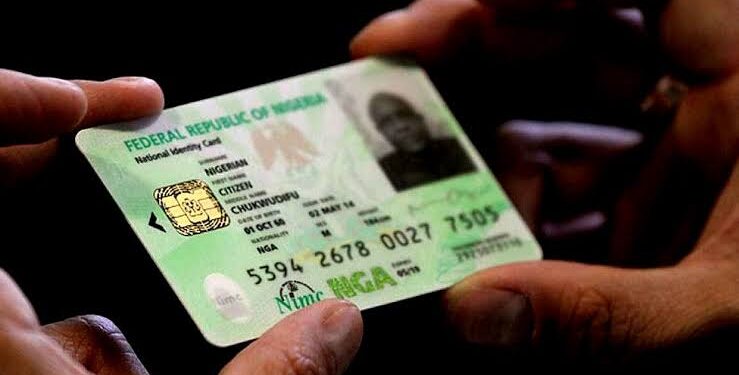Nigeria may face challenges issuing physical NIN ID cards to its citizens due to inadequate infrastructure, says Olatunji Durodola, Founder and Chief Innovation Officer of UrbanID Global.
In an interview with Nairametrics, Durodola emphasized that issuing physical identity tokens is capital-intensive, and the infrastructure required to support it is fragile.
“The support infrastructure is fragile and very capital intensive” Durodola said.
The National Identity Management Commission (NIMC) recently announced plans to allow Nigerians with a National Identification Number (NIN) to request e-ID cards with payment functionalities. However, Durodola, whose company designed the NIMC Mobile ID app, noted that physical and digital IDs have significantly different lifecycles and implementation processes.
He highlighted Nigeria’s previous attempt to issue sophisticated e-ID cards in 2013, which ultimately failed due to poor infrastructure and funding issues.
“The issuance of cards for free was also a challenge for companies who had installed capacity to personalize those cards. The sticky point was how they would be paid. So it eventually died.” Durodola explained.
Despite these setbacks, Nigeria has made significant progress with digital IDs. “Between 2020 and 2024, Nigeria led Africa with the issuance of MobileIDs, taking advantage of the very enviable spread of Smartphones in the Country, and creating an enabling environment for their use.” said Durodola.
He noted that public awareness of the initiative was limited, but 23 million MobileIDs were still issued, driven largely by word of mouth.
While the World Bank has advised against the issuance of physical cards, Nigeria seems to be shifting back to this approach, despite the reliance on foreign expertise.
“Those foreign vendors with specialist skills will provide invoices to the Government in their native currency (USD or Euro). They want our money, but not our currency.” Durodola remarked.
Discussing the issue of data security, Durodola emphasized the significance of enforcing strict identity verification protocols in order to avoid vulnerability to breaches.
UrbanID Global is committed to making Nigeria a benchmark for data privacy in developing economies. However, with the high costs of physical card issuance and ongoing infrastructure challenges, the country may find it difficult to balance these goals with the push for physical ID cards.
























































